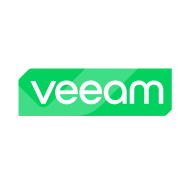

Microsoft System Center and Veeam Data Platform are prominent players in IT management and data protection arenas. Veeam tends to have the upper hand due to its robust backup and replication features which are praised for efficiency and reliability across varied environments.
Features: Microsoft System Center is deeply integrated with Microsoft products, leveraging a user-friendly interface, effective antivirus controls, and environment discovery tools. Veeam Data Platform stands out for its backup and replication capabilities, featuring instant recovery, granular restoration, and integration with virtual environments, ensuring efficient data management and space-saving.
Room for Improvement: Microsoft System Center could enhance its integration with non-Microsoft solutions, improve its user interface, and support mobile environments better, alongside augmenting its documentation resources. Veeam Data Platform can enhance its support for non-virtual environments, improve cloud integration, and refine its documentation, with some users indicating cost-related challenges with feature expansion.
Ease of Deployment and Customer Service: Microsoft System Center is primarily deployed on-premises and benefits from existing Microsoft infrastructure integration but suffers from expensive and delayed technical support. Veeam Data Platform, adaptable to multiple environments from on-premises to cloud, garners positive feedback for straightforward setup, though some users mention slower support times, complemented by strong community assistance.
Pricing and ROI: Microsoft System Center is viewed as expensive, with high licensing costs, but offers satisfactory ROI through integration and support services. Veeam Data Platform provides competitive pricing relative to alternatives, recognized for lower operational costs and reliable management. Pricing variances exist, but its feature set generally justifies costs, notably appealing for smaller enterprises seeking value-for-money.
Integration with other vendors is also seamless.
In order to scale Veeam Data Platform, we have to pay a lot more money.
There are no issues with stability in Veeam Data Platform.
Reducing it by 20% would make it more accessible to a broader range of customers.
The improvement we would like to see is the option to scale Veeam Data up in smaller sections rather than large sections, which requires paying much more.
A reduction of 20% in the current cost would make the solution more attractive to clients.
From what I know, it is expensive to add modules, with a scale rating of eight out of ten.
The platform is user-friendly, comprehensive, and compatible with numerous market solutions, including virtualization and bare metal servers.
Veeam Data Platform is valuable for its stability and the ability to easily contact support for assistance.


Veeam Data Platform ensures comprehensive data resilience by offering secure backups and intelligent data insights, catering to the complexities of modern data management.
Veeam Data Platform empowers businesses with reliable data protection, orchestrated recovery, and streamlined management. Providing peace of mind, it guarantees data is secure, available, and effortlessly recoverable. Organizations benefit from features such as instant recovery, simplified management, and compatibility with virtual environments. While it shines in backup and restore capabilities, it calls for improvements in integration with physical servers and enhanced cyber security features.
What are the key features of Veeam Data Platform?Organizations in industries like finance, healthcare, and manufacturing utilize Veeam Data Platform for critical data management, ensuring business continuity and disaster recovery. Employed in securing both virtual and physical workloads, Veeam integrates cloud storage for enhanced scalability and efficiency.
We monitor all Cloud Monitoring Software reviews to prevent fraudulent reviews and keep review quality high. We do not post reviews by company employees or direct competitors. We validate each review for authenticity via cross-reference with LinkedIn, and personal follow-up with the reviewer when necessary.